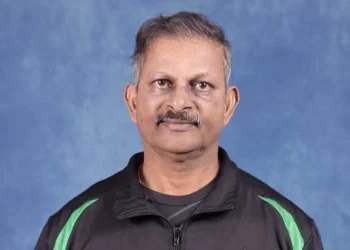Defence Minister Yoav Gallant this week criticised the Prime Minister’s vision for post-war Gaza
Live updates: Follow the latest on Israel-Gaza
Rifts are growing in Israel’s war cabinet as the Gaza war turns into a potential stalemate, strengthening Prime Minister Benjamin Netanyahu’s rivals.
However, the growing number of critics have no immediate prospect of dislodging Mr Netanyahu from power, western diplomats and a political observer said on Thursday.
The October 7 Hamas attack on Israel that killed about 1,100 Israeli civilians and ushered in the devastating seven-month conflict has led to a unity government and war cabinet.
The move aimed to show that Israel’s divided ruling elite can together focus on the so-far elusive goal of neutralising Hamas, a militant group supported by Iran.
Other threats, including Lebanese Hezbollah, a militia far more powerful than Hamas, and Iran – which directly attacked Israel for the first time on April 13 – underlined the need for political unity.
The war cabinet comprises three heavyweights: Mr Netanyahu, Benny Gantz, the former head of the army, and Defence Minister Yoav Gallant.
Mr Gantz and Mr Gallant are seen as less accommodating towards Israeli’s religious right, and more focused on ties with Washington. This is in addition to their distaste for Mr Netanyahu, a more populist leader with political durability, despite having been at the centre of continuing corruption allegations.
More seriously, there has been growing anger at the Prime Minister arising from the shock that Israeli communities were overrun by Hamas on his watch.
Domestically, he had sold himself as a leader who would strengthen Israel’s security. Internationally, Mr Netanyahu is facing even less acceptance.
“When you want a viable solution in the long term it is important to have a partner in the Israeli government,” Belgian Development Co-operation Minister Caroline Gennez said in Amman this week.
“So far, they don’t seem to listen to international calls,” said Ms Gennez as she explained her government’s push for a European weapons export ban on Israel.
The latest high-profile rift came this week, with the Defence Minister challenging Mr Netanyahu’s vision of long-term Israeli military rule in Gaza once Hamas is supposedly defeated.
Mr Gallant said in televised remarks that Israel should seek a friendly government in Gaza, as opposed to indefinite military rule.
Mr Netanyahu’s maximalist positions have also made him a thorn in the side of the US administration, which appears to have opened a separate channel with Mr Gantz.
A western diplomat said that a “tipping point” for Mr Netanyahu could occur if Mr Gantz and Mr Gallant resigned together, combined with growing street protests against the Prime Minister.
But the diplomat cautioned that the Israeli government still has strong support from the United States and from Germany to ultimately eradicate Hamas. Mr Netanyahu and his two political foes in the war cabinet also “all need each other to survive” amid the lack of progress for Isreal in the war.
The US elections in November could also bring in former president Donald Trump, who is seen as more friendly to Mr Netanyahu, the diplomat said, and less in favour of a Palestinian state.






 United Arab Emirates Dirham Exchange Rate
United Arab Emirates Dirham Exchange Rate

